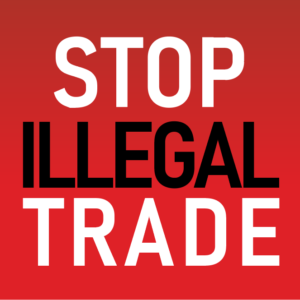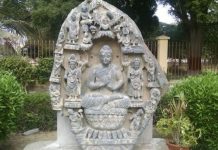Islamabad: Tax evasion and illegal trade in five sectors – tea, tyres & auto lubricants, pharmaceuticals, illicit cigarettes and real estate – are inflicting a whopping annual loss of Rs 310bn to the country’s exchequer.
The annual loss to the national kitty because of tax evasion in the tea industry was estimated to stand at Rs35b; in the tyres and auto-lubricants industry Rs90b; in the pharmaceutical industry Rs 45bn; in the illegal tobacco trade Rs80b;; and in the real estate sector to be Rs60b, says a research paper by IPSOS, which is headquartered in Paris and has a direct presence in 90 major markets with operations in 120 countries.
The report says that real estate transactions are of a rather complex nature, leaving significant room for tax evasion. There are two main reasons for tax evasion in the real estate sector: under-invoicing and cash transactions. The real estate sector has traditionally been a beneficiary of the practice of under-invoicing. Parties involved in a transaction deliberately understate the value to avoid paying taxes. According to an industry expert, the property is usually valued at 60-70% less than the market value in the sale/purchase deed. For instance, a valuation table of land was adopted in Punjab almost three decades ago, and greatly streamlined through legislation/rule-making under the Stamp Act 1899, specially section 27-A, and the Punjab Stamp (Valuation Tables in respect of Urban Land) Rules 1999, as an amendment in 2010, extending it to all immovable property in Punjab without differentiation of urban or rural. But surprisingly, in the Islamabad Capital Territory (ICT), where land is usually most expensive, this most essential framework was never adopted until 2020. This has resulted in tax evasion of billions of rupees since the establishment of the ICT. The absence of a legal framework is also one of the root causes of corruption in the land revenue administration and a lack of transparency in land transactions.
In 2019, the Federal Board of Revenue (FBR) issued a valuation table for immovable properties situated in different sectors and approved the housing societies/colonies of Islamabad. This commendable step enhanced revenue from real estate in the old developed sectors and a few newer societies. For localities, areas and revenue estates not covered by this FBR directive, the Islamabad District Collector has been empowered to notify an evaluation table under section 27-A of the Stamp Act, 1899. However, this table has been twice revised downwards due to pressure from the property mafia and property dealers.
The study says that the revenue administration of the ICT for the purposes of value determination of land in Islamabad is still using the archaic method of classification of land, which is immaterial and irrelevant in present times as it cannot be linked to the agricultural productivity of land or the classification of land. To avoid tax evasion, the land value has to be ascertained by its real estate value, potentiality and location within five Zones of the ICT, under the ICT Zoning Regulations, 1992 and with reference to proximity to major roads, and most importantly, land use as permitted by different CDA regulations, particularly the Islamabad Residential Sectors Zoning (Building Control) Regulation, 2020.
As for tea, the IPSOS research says that comparing the January 2020 figures with those of January 2021 reveals an increase of 28% of tea import in Pakistan, which established the fact that it was a growing consumption commodity in Pakistan. In the first two months of 2021, Pakistan imported around 39m kilograms of tea. In 2020, Pakistan imported 250.8m kilograms. As most of Pakistan’s needs are met via imports, it leaves a lot of room for tax evasion and illegal trade.
A business official associated with the tea import industry disclosed that 55%-60% of the tea demand in Pakistan is managed by large scale importers and the remaining 40%-45% is managed by small traders. These small traders sell loose/ unbranded/ unpackaged tea which eventually contributes to massive tax evasion. Half of the total consumption in Pakistan is of loose tea, which, apart from hurting the national exchequer, is also leading to health hazards as it is smuggled without any safety protocols. Furthermore, multiple reports of tea vendors adding colour to loose tea have been reported. These artificial colours are hazardous to the health of the general public.
The research says that the tyre industry, that has a huge potential for providing tax revenues, has a widespread culture of tax evasion primarily due to counterfeiting by local dealers and retailers. The tyre industry is directly connected to the automotive industry in Pakistan which has witnessed a sharp increase in demand over the years. According to the finance ministry, Pakistan had around 4m vehicles on the road in 2000. Ten years later, this number had almost tripled to 11m vehicles. In 2018, the total number of registered vehicles in Pakistan was 23.5m. The more the vehicles, the more the demand for tyres and most of that demand is met through imports. According to the local industry, 65% of the demand for tyres in the market is met by illegal/smuggled tyres. Annually, Pakistan uses approximately 10 million tyres out of which 20% are locally manufactured, 15% are imported and the remaining 65% are smuggled.
The tyre trade under the Afghanistan-Pakistan Transit Trade Agreement (APTTA) alone has seen an increase of 205%. Trade under APTTA is meant to provide an avenue for Afghanistan to use Pakistan as a conduit for their imports but due to weak enforcement, the law gets abused. In several raids, customs officials have noticed that some dealers hide 4-5 tyres for every tyre and by that practice, only pay duty on one tyre against the import of five/six causing massive losses to the national exchequer.
The study says the auto lubricants industry is intertwined with the tyre industry in terms of usage. Its network has three tiers in Pakistan; importers, processors, and the dealers/ distributors/ retailers network. According to industry insiders, around 95% of wholesalers/retailers/ unauthorized distributors are not documented. Annually, Pakistan consumes 400m litres of lubricants. Half of this oil (200m litres) is reused as reclaimed oil and according to an industry expert, 60% (120m litres) goes into the undocumented economy resulting in massive losses to the national exchequer.
The total value of the lubricants industry is estimated to be Rs120 billion and one third of it is reclaimed oil from which the government has no tax income. Reclaimed oil is cheap but substandard but many consumers prefer it. The reclaimed oil does not just result in losses to the national exchequer, it also poses significant risk to the automobiles it is used in. The oil that is reclaimed and reprocessed is adulterated, low quality and does not comply with industry standards. The vehicles that use this oil are prone to engine trouble.
The IPSOS survey says that counterfeit drugs in Pakistan are also a critical issue. The Lahore fake medicine crisis of January 2011 was a manifestation of this problem. Within a period of three weeks, more than 100 people lost their lives while an additional 250 developed complications after a counterfeit heart medicine was administered to 40,000 cardiac patients. According to a study done in 2019, around 4% of the total market demand is being met through counterfeit medicine. Smuggled medicines are another major issue causing losses to the national exchequer. Two percent of the total market demand is deemed to be met through illegal means.
The research also points to the illicit trade in cigarettes, that comprises close to 40% of the total cigarette market. Tax evasion is carried out through the illegal tobacco trade and has three main strands, each having its own estimation of losses to the national exchequer and additional violations of several other laws.
One, local duty-not-paid cigarettes are the most significant in terms of tax evasion and have the majority share of more than 90%. Illicit cigarette brands violate the minimum price and minimum tax per pack laws as well as openly flouting tobacco advertising and promotion regulations. The Pakistan government has over the years introduced heavy taxes to discourage cigarette smoking. While this measure has not really been effective in reducing the incidence of smoking, it has incentivized tax evasion from the local illicit cigarettes sector. Given high incidence of tax on the product, tax evasion presents a lucrative financial incentive.
Source: The News – May 28, 2021













